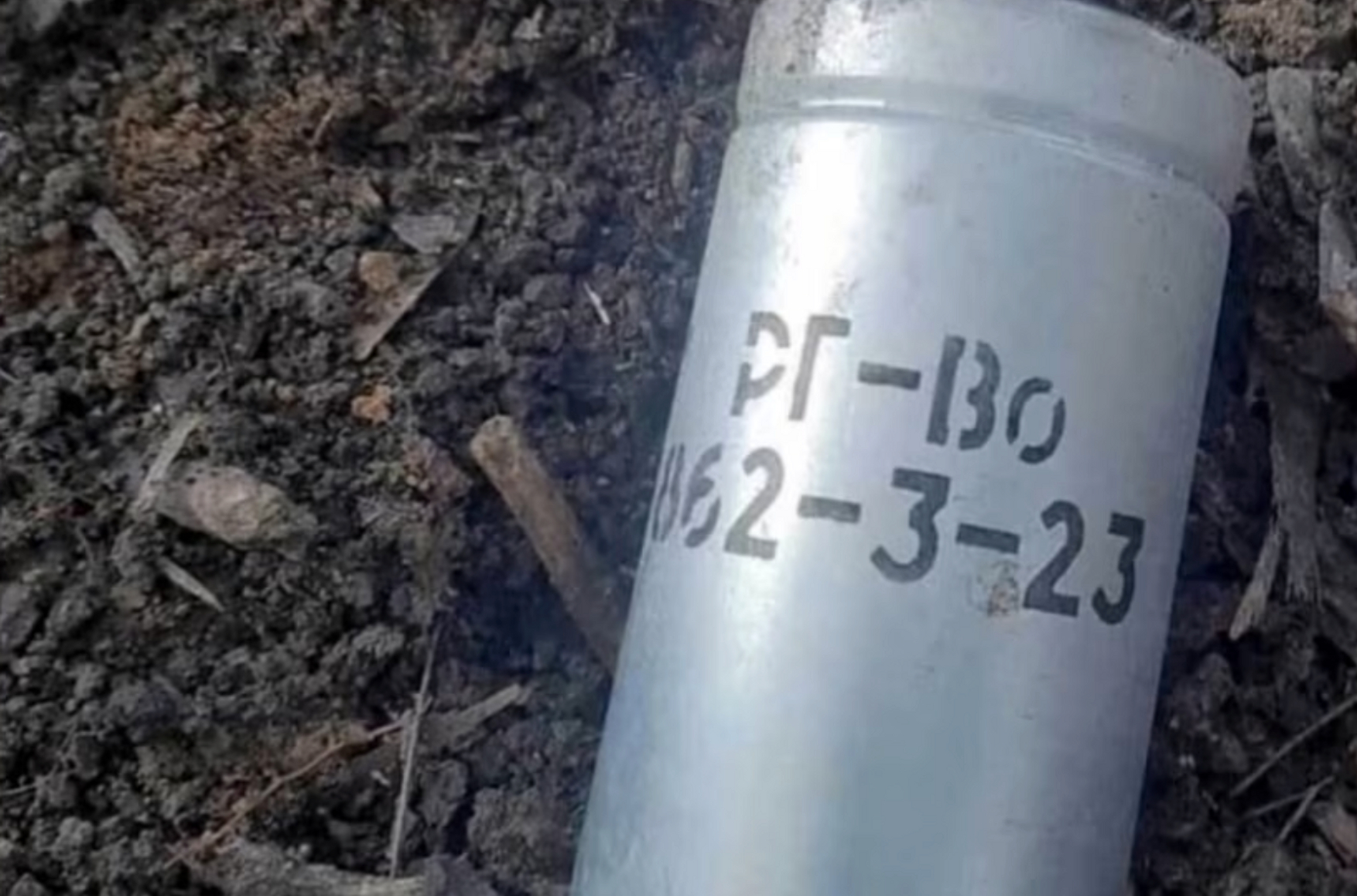
Photo: Skhemy (Schemes)
A research institute outside Moscow is manufacturing chemical weapons that Russia’s military has deployed in Ukraine — in violation of international law — a report by Skhemy (lit. “Schemes”), the investigative unit of Radio Free Europe/Radio Liberty’s Ukrainian service, has found.
The Applied Chemistry Research Institute in Sergiyev Posad, a town just over 40 miles northeast of Moscow, sources the components for its grenades from companies across Russia that have not yet been hit by Western sanctions. The facility also receives materials from Chinese firms which it uses to produce banned phosphorus munitions, the investigation revealed.
Despite its obligations under the Chemical Weapons Convention, Russia has not abandoned such weapons but has instead modernized and expanded their production. Since the start of the full-scale invasion, the Security Service of Ukraine (SBU) has documented more than 10,000 chemical attacks on its country’s troops — mostly with RG-Vo (РГ-Во) grenades, short for “hand grenade with toxic substance,” which were introduced to Russia’s arsenal in December 2023, according to Skhemy. The grenades are widely used by Russian units, including the 114th and 136th Motorized Rifle Brigades and detachments of the National Guard (Rosgvardiya).
The weapons contain toxic CS and CN gases. While their production is not formally banned, using them in combat violates international law. Russian forces employ the RG-Vo to flush Ukrainian soldiers from dugouts and other shelters before attacking. The grenades have been displayed at exhibitions and on television broadcasts by state-controlled propaganda channel RT, but the Kremlin denies using them.
How the grenades are used
- After pulling the pin and securing the safety lever, the grenade is attached to a quadcopter (a four-rotor drone).
- The operator flies it over Ukrainian positions and drops it into a dugout.
- Toxic smoke quickly fills the space. Soldiers either put on gas masks or flee for air.
- Once they leave cover, Russian troops open fire.
From bike trailers to chemical weapons parts
The state-owned Saransk Mechanical Plant, part of the sprawling Rostec defense corporation, is one of the Russian companies involved in the supply chain for the production of the RG-Vo grenades, supplying the Applied Chemistry Institute with two types of pyrotechnic delay fuses essential for detonation. Tax records obtained by Skhemy confirm deliveries in 2024. While the plant markets itself as a manufacturer of bike trailers, outdoor furniture and grills, investigative reporters found that it also makes weapons components.
Another supplier in 2024 was the private firm EurokhimInvest, which sold solvents such as chloroform and acetone to the institute. Chloroform is used to produce CN gas, and acetone is used for CS gas, both of which are components of the RG-Vo.
Phosphorus imports from China
Russia also buys red phosphorus from China that is used in both civilian and military pyrotechnics. Russian customs data shows the institute purchased nearly 100 tons between 2022 and 2023, worth more than $1 million — about a quarter of all Russian imports of the substance in that period, according to the Skhemy report.
The phosphorus was shipped by rail, requiring two freight cars. It came from Yunnan Phosphorus, which represented another Chinese firm, Dongguan Haofei. According to data cited by the Organized Crime and Corruption Reporting Project (OCCRP), Yunnan Phosphorus was registered in 2018 with capital of about $1.4 million, while Dongguan Haofei was founded in October 2022, with capital of around $70,000.
The European Union and Ukraine accuse Russia of violating the Chemical Weapons Convention and classify such actions as war crimes. In May 2025, the EU imposed sanctions on three Russian organizations tied to the development and use of chemical weapons. However, production of the RG-Vo grenades continues, sustained by domestic suppliers and imports from China that circumvent the restrictions.